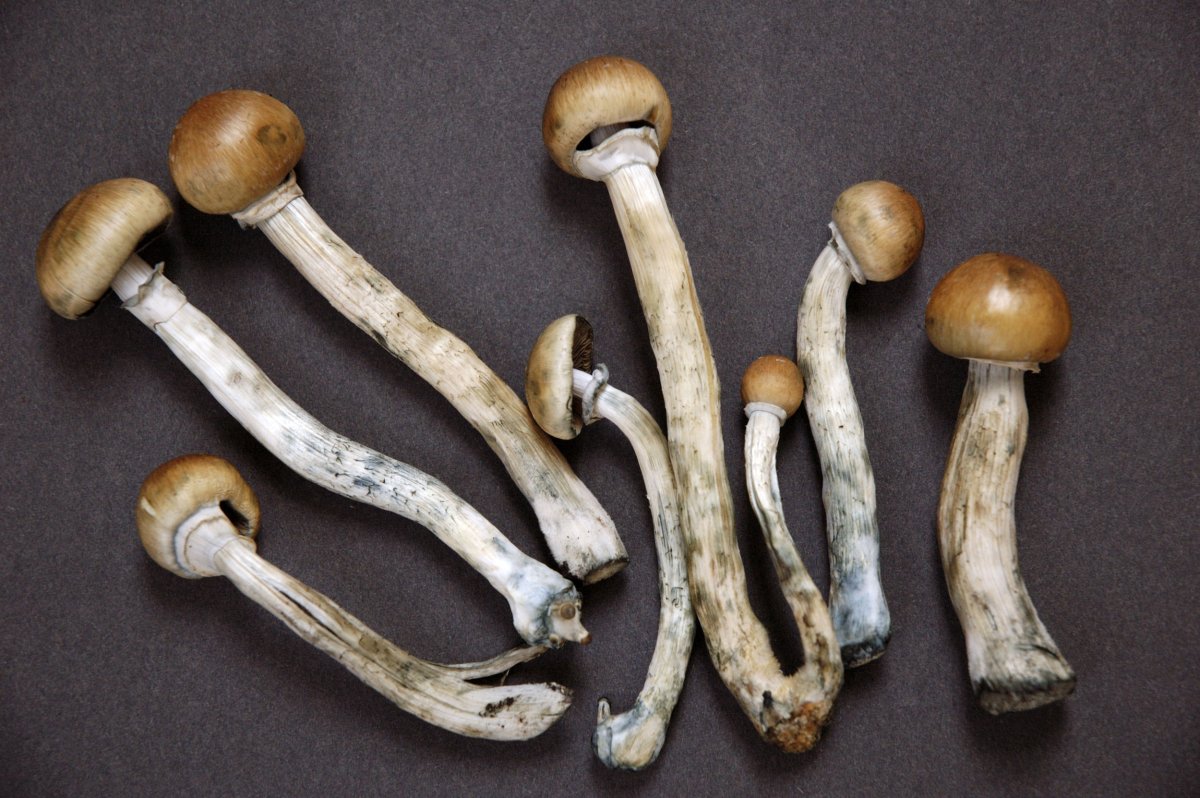Psilocybin, the active ingredient in "magic" mushrooms, has shown promise for treating anxiety in terminal cancer patients, easing symptoms of obsessive-compulsive disorder, reducing the distress associated with social exclusion and making it easier to quit smoking.
New work suggests it may also help people with treatment-resistant depression. In a study published May 17 in The Lancet Psychiatry, 12 patients were given psilocybin on two occasions, first a low dose to ensure they didn't react unfavorably, and then a high dose. All 12 patients, who had moderate to severe depression, were significantly less depressed one week after the high-dose session, as assessed during an in-person interview. Three months later, seven of the 12 were still significantly less depressed (with a 50 percent improvement in their score on the Beck Depression Inventory, a standard test), and five of 12 were in complete remission.
"That is pretty remarkable in the context of currently available treatments," Robin Carhart-Harris, a neuropsychopharmacologist at Imperial College London, told Nature. The sort of spontaneous recovery shown in many of these test subjects is quite rare in patients with long-lasting, treatment-resistant depression; and on average, these study participants had been depressed for nearly 18 years.
It's unknown exactly how the drug does its thing. Psilocin, a by-product of psilocybin, binds to serotonin receptors in the brain; because these receptors are involved in mood regulation, this mechanism could help alter levels of neurotransmitters that are out of balance in depression. Research also shows that people who take psilocybin often have so-called mystical experiences, in which they report feelings of great peace and connection with others and their environment. It's possible this singular event may permanently change the mind in a way that helps overcome problems like depression.
The authors emphasized that this was a "proof of concept" study, and with its small number of patients, doesn't prove psilocybin is effective in treating depression. It merely suggests that it should be researched further, and is safe when given in a controlled environment.
"The data at three-month follow-up, a comparatively short time in patients with extensive illness duration, are promising, but not completely compelling," Philip Cowen, a researcher with the University of Oxford, told the BBC. But due to its promise, psilocybin should be further studied, added Glyn Lewis, with University College London, speaking to Nature.
Carhart-Harris emphasized that he doesn't recommend that people take mushrooms on their own. "Psychedelic drugs have potent psychological effects and are only given in our research when appropriate safeguards are in place, such as careful screening and professional therapeutic support, he told The Guardian. "I wouldn't want members of the public thinking they can treat their own depressions by picking their own magic mushrooms, [as that] approach could be risky."

Uncommon Knowledge
Newsweek is committed to challenging conventional wisdom and finding connections in the search for common ground.
Newsweek is committed to challenging conventional wisdom and finding connections in the search for common ground.
About the writer
Douglas Main is a journalist who lives in New York City and whose writing has appeared in the New York ... Read more
To read how Newsweek uses AI as a newsroom tool, Click here.








